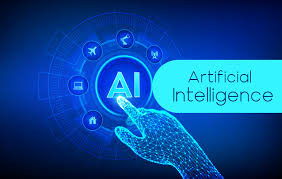Unlock Your Potential: Learn JavaScript for Endless Possibilities
Learn JavaScript and Unlock Endless Possibilities
JavaScript is a powerful programming language that has become essential for any aspiring developer. Whether you’re looking to build interactive websites, create web applications, or dive into the world of mobile app development, mastering JavaScript is a crucial step in your journey.
Why Learn JavaScript?
JavaScript is the backbone of modern web development. With JavaScript, you can add dynamic content to your websites, handle user interactions, and create responsive designs that adapt to different devices. As one of the most popular programming languages in the world, learning JavaScript opens up a wide range of opportunities for your career.
Getting Started with JavaScript
If you’re new to programming, don’t worry – JavaScript is beginner-friendly and easy to learn. You can start by understanding the basic syntax and concepts of the language, such as variables, functions, and loops. There are plenty of online resources, tutorials, and courses available to help you get started on your JavaScript journey.
Advanced Topics in JavaScript
Once you’ve grasped the fundamentals of JavaScript, you can explore more advanced topics like object-oriented programming, asynchronous programming with Promises and Async/Await, manipulating the DOM (Document Object Model), working with APIs (Application Programming Interfaces), and building interactive web applications using frameworks like React or Angular.
Practice Makes Perfect
The key to mastering JavaScript is practice. Try building small projects or experimenting with code snippets to solidify your understanding of the language. By continuously challenging yourself and pushing your boundaries, you’ll soon find yourself becoming more comfortable and proficient in writing JavaScript code.
Join the Community
One of the best ways to learn JavaScript is by joining online communities and forums where you can connect with other developers, ask questions, share knowledge, and collaborate on projects. The tech community is vast and supportive – don’t hesitate to reach out for help or guidance along your learning journey.
Conclusion
Learning JavaScript is a rewarding experience that opens up a world of possibilities in the realm of web development. Whether you’re aiming to become a front-end developer, full-stack engineer, or mobile app developer, mastering JavaScript will equip you with the skills needed to succeed in today’s digital landscape.
So what are you waiting for? Dive into the world of JavaScript today and embark on an exciting journey towards becoming a proficient developer!
Top 5 FAQs About Learning JavaScript: Answers to Your Burning Questions
- What is JavaScript and why should I learn it?
- Is JavaScript difficult to learn for beginners?
- What are the best resources for learning JavaScript?
- How can I practice and improve my JavaScript skills?
- What are the common challenges faced when learning JavaScript?
What is JavaScript and why should I learn it?
JavaScript is a versatile programming language that is essential for anyone looking to excel in web development. It allows you to add interactivity, dynamic content, and functionality to websites, making them more engaging and user-friendly. Learning JavaScript opens up a world of opportunities for aspiring developers, as it is widely used across the web and is a fundamental skill in today’s tech industry. By mastering JavaScript, you gain the ability to create interactive web applications, work with popular frameworks and libraries, and build a solid foundation for a successful career in programming.
Is JavaScript difficult to learn for beginners?
Many beginners often wonder, “Is JavaScript difficult to learn?” While JavaScript may seem intimidating at first, it is considered beginner-friendly compared to other programming languages. With its straightforward syntax and versatile applications in web development, JavaScript offers a solid foundation for newcomers to start their coding journey. By dedicating time to practice, seeking resources like tutorials and online courses, and actively engaging with the programming community, beginners can gradually build their skills and confidence in mastering JavaScript. Remember, persistence and patience are key when embarking on the learning path of JavaScript.
What are the best resources for learning JavaScript?
When it comes to learning JavaScript, one of the most frequently asked questions is, “What are the best resources for learning JavaScript?” There is a wealth of resources available for aspiring JavaScript developers, including online tutorials, interactive coding platforms, books, courses on websites like Codecademy and Udemy, and community forums like Stack Overflow where you can seek help and guidance. Additionally, popular JavaScript libraries and frameworks such as React, Angular, and Vue have their own documentation and tutorials that can be valuable resources for mastering the language. Ultimately, the best resources for learning JavaScript are those that cater to your individual learning style and provide hands-on practice to reinforce your understanding of key concepts.
How can I practice and improve my JavaScript skills?
To practice and improve your JavaScript skills, consistency and hands-on experience are key. Start by working on small projects or coding challenges regularly to reinforce your understanding of JavaScript concepts. Additionally, consider building interactive websites, web applications, or games to apply your knowledge in real-world scenarios. Collaborating with other developers, participating in coding communities, and seeking feedback on your code can also help you refine your skills and stay motivated. Remember, the more you practice and experiment with JavaScript, the more confident and proficient you will become in mastering this versatile programming language.
What are the common challenges faced when learning JavaScript?
When learning JavaScript, beginners often encounter common challenges that can hinder their progress. Some of these challenges include understanding the concept of asynchronous programming, grappling with the complexities of the DOM (Document Object Model), dealing with scope and closures, and mastering the various built-in methods and functions. Additionally, beginners may struggle with debugging their code effectively and grasping the nuances of JavaScript’s event handling. Overcoming these challenges requires patience, practice, and a willingness to delve deep into the intricacies of JavaScript to build a solid foundation for further learning and growth in this dynamic programming language.





